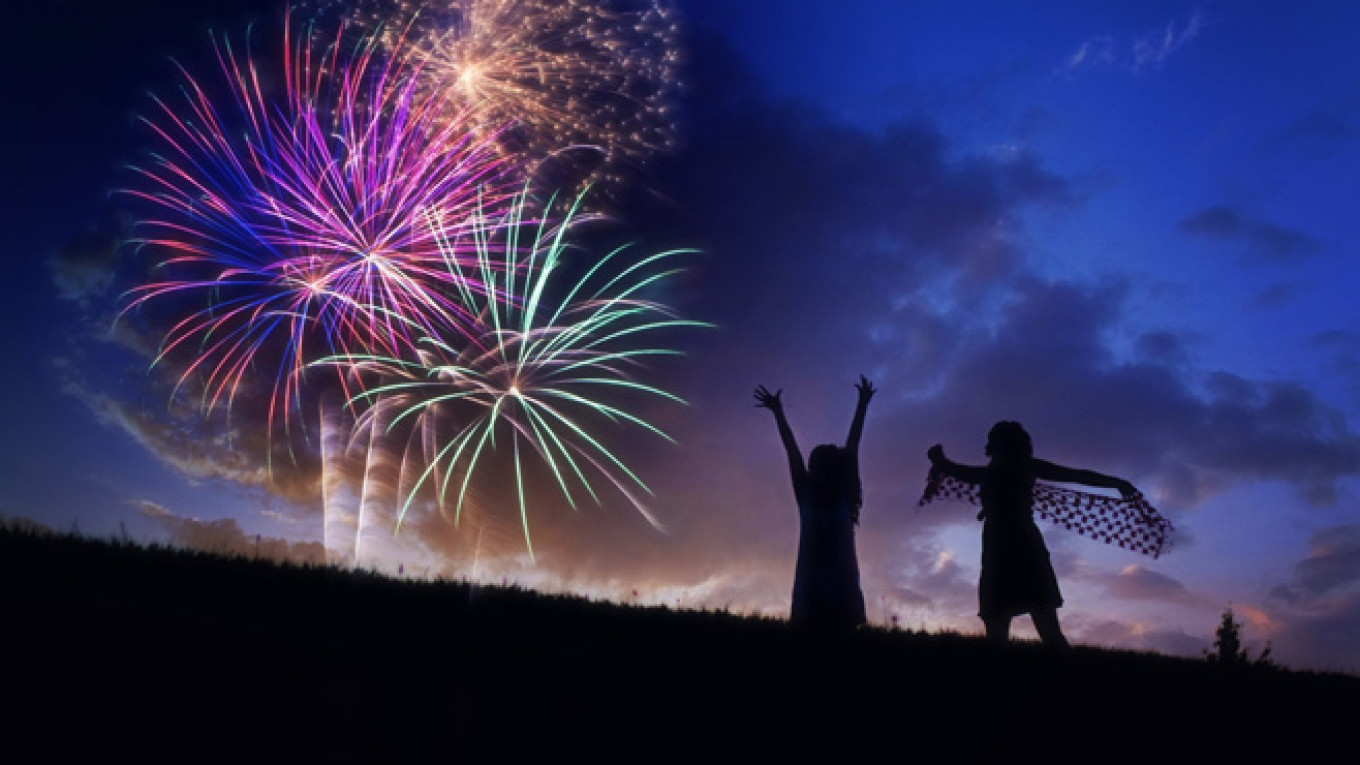Um, no. We realize this comes as a shock to many Americans, who are used to hearing rousing versions of the 1812 Overture played, complete with cannon volleys and fireworks, every July 4 to celebrate Independence Day. But it wasn't written about the U.S. victory in the Revolutionary War or even to celebrate the end of the U.S.-British War of 1812.
Tchaikovsky's Overture is about the French invasion of Russia that took place in 1812 — clearly a bad year for peace around the world. He wrote it in 1880 at the urging of his friend Nikolai Rubinstein for the consecration of the Christ the Savior Cathedral, which was built to commemorate the war and was expected to be completed in 1882. The church bells were to be integrated into the performance, along with cannons that were supposed to be set off at the right dramatic moments.
But Emperor Alexander II was assassinated a year later and the piece's triumphant tone was out of place. The overture did debut in 1882, but at the Moscow Arts and Industry Exhibition in a tent outside the cathedral, which was still under construction, without church bells and cannons.
If you listen carefully to the music, you can hear references to Russia and France. The Overture begins with a rendering of an Orthodox Church troparion (hymn) representing peaceful Russia and includes a bit of "La Marseillaise," the French national anthem, when Napoleon's troops advance into the country. At the end you can hear a bit of "God Save the Tsar" before all the church bells and cannons and percussive madness begin and you start looking heavenward at the fireworks display.
Although Tchaikovsky didn't write music for the United States, he did play a key role in the country's musical history. He was the VIP conductor who led the orchestra on opening night at the New York Music Hall, now known as Carnegie Hall. Tchaikovsky spent several months in the United States in 1891, and judging by his letters and diaries, he liked it very much. "All in all, New York, American customs, American hospitality, the very sights of the city, and the unusual comforts of the surroundings—all this is quite to my liking," he wrote. "And if I were younger, I would probably derive great pleasure from staying in this interesting, youthful country."
A Message from The Moscow Times:
Dear readers,
We are facing unprecedented challenges. Russia's Prosecutor General's Office has designated The Moscow Times as an "undesirable" organization, criminalizing our work and putting our staff at risk of prosecution. This follows our earlier unjust labeling as a "foreign agent."
These actions are direct attempts to silence independent journalism in Russia. The authorities claim our work "discredits the decisions of the Russian leadership." We see things differently: we strive to provide accurate, unbiased reporting on Russia.
We, the journalists of The Moscow Times, refuse to be silenced. But to continue our work, we need your help.
Your support, no matter how small, makes a world of difference. If you can, please support us monthly starting from just $2. It's quick to set up, and every contribution makes a significant impact.
By supporting The Moscow Times, you're defending open, independent journalism in the face of repression. Thank you for standing with us.
Remind me later.


